Neo founder Da Hongfei hosted a cross-platform AMA on X and Discord to discuss SpoonOS, a newly announced agentic operating system framework, and the broader trajectory of the Neo ecosystem. Across both platforms, Da responded to over 60 questions from community and ecosystem participants, addressing Neo’s evolving strategy, technical priorities, and plans for long-term sustainability.
SpoonOS and the Sentient Economy
Central to the conversation was SpoonOS, a developer framework designed to support the creation of AI-powered agents on the Neo blockchain. Da described SpoonOS as an “agentic OS” rather than a traditional blockchain operating system, emphasizing that it provides foundational infrastructure for building interoperable, autonomous agents.
Da explained that SpoonOS will initially support both Neo N3 and Neo X. The framework is not itself a blockchain, but integrates with Web3 services via Neo’s infrastructure and incorporates emerging technologies such as decentralized identifiers, zero-knowledge machine learning, and the MCP+ protocol to manage real-time, privacy-preserving data across agents.
In discussing its broader role, Da positioned SpoonOS as a vehicle to transition Neo from a “Smart Economy” into what he described as a “Sentient Economy”—an adaptable, AI-driven digital infrastructure where agents act on behalf of users and respond to real-time contexts across blockchain and Web2 services.
Developer focus and funding initiatives
To incentivize development within the SpoonOS ecosystem, Da revealed a US $2 million fund split across three programs:
- Global Beacon Program: Supporting ecosystem advocates, mentors, and leaders with gamified rewards and seasonal incentives.
- Global Developer Program: Backing technical contributors through grants, incubation, hackathons, and support services.
- Ecosystem Collaborations: Aiding partners in developing infrastructure, agents, and decentralized applications built on SpoonOS.
Da noted that SpoonOS is intended for developers, not end users, and he encouraged builders to experiment with novel agent applications, including potential integrations with IoT, DeFi, and AI-powered governance models.
Neo’s long-term strategy
Beyond SpoonOS, Da addressed broader questions about Neo’s current state and future. He acknowledged that the current Neo N3 stack is not considered state-of-the-art and emphasized that future innovation will focus on AI and zero-knowledge technologies. He described Neo as pursuing a “radically different” architecture to move beyond the limitations of existing L1 and L2 chains.
Da shared that the Neo Foundation treasury is structured to sustain operations for more than ten years at the current burn rate, underscoring a commitment to long-term development rather than short-term token performance. He also hinted at new roadmap announcements expected in the coming months.
On ecosystem growth and market position
When asked about increasing adoption in regions such as Africa, Da acknowledged the opportunity and said the NGD EcoGrowth team would explore options. He also confirmed ongoing efforts to phase out Neo Legacy and support N3 integration with custodial exchanges like Bitvavo.
In response to comparisons with other ecosystems, Da reiterated that Neo is not aiming to compete within existing paradigms, likening other projects to “petrol cars” while stating that Neo is focused on building the “electric vehicles” of Web3 infrastructure.
Security, governance, and use cases
Da responded to technical questions about the challenges of agentic software, stating that SpoonOS agents will require explicit user approval to access assets, ensuring safety and transparency. He also discussed the use of trusted execution environments, ZK proofs, and fully homomorphic encryption as part of the SpoonOS security model.
In terms of governance, Da envisions a future where agents can vote on behalf of users in DAOs, reducing the cognitive cost of participation and enabling more fluid decision-making processes.
Community engagement and continued development
The AMA highlighted Neo’s renewed focus on developer experience, privacy-preserving AI, and modular agent systems. With SpoonOS still under development, Da emphasized patience while pointing to the SpoonOS X account for future updates and demo announcements.
Da closed by affirming Neo’s foundational mission: “To make any asset, digital or physical, accessible by human beings and programs with minimized trust and permission.” He said this vision remains the guiding principle as Neo transitions from smart to sentient systems.
The transcript of the AMA across both platforms can be found below.
Discord Questions
Q1: Are you currently in Dubai?
Da: “I’m in Singapore now. I moved to Singapore in 2020.”
Q2: What happened to Erik Zhang?
Da: “Erik spent most of his time on his personal life recently. But he is still involved loosely on technical and treasury management issues.”
Q3: What do you believe will be the most game-changing feature that will bring Neo back into the spotlight in 2025/2026?
Da: “The current tech stack of Neo N3 is not State of the Art and mainstream. But I see a paradigm-shifting trend coming for programming and computation. AI and ZK will be the key tech. Neo will double down on these two key techs. SpoonOS will be a product focused on the AI side.”
Q4: Looking ahead 5 to 10 years, what role do you hope Neo and SpoonOS will play in the broader Web3 and global economy? For example, do you envision mainstream businesses, governments, or consumer devices routinely using autonomous agents on Neo by then?
Da: “In 5-10 years, I envision that the underlying blockchain architecture will be very different from today’s Ethereum-esque architecture. Neo Foundation will be on a completely different next-gen arch to be back in the game.”
Q5: “Some might say “operating system” is a buzzword. What key features will definitively demonstrate that SpoonOS is a true OS for agents and not just another framework? Are there specific benchmarks or demos you aim to hit early to prove its OS capabilities?”
Da: “I agree it’s a buzzword, but I also think it’s a good metaphor of what SpoonOS can do – an agentic OS where devs and users can build agent applications on top of it.”
Q6: Training and running neural nets can be energy-intensive. Has the team considered mechanisms to minimize the environmental impact of SpoonOS (such as using off-chain compute networks, incentivizing green computing, or carbon offsets)?
Da: “SpoonOS is not an LLM. It’s a framework to build agents who use LLM to communicate with other agents and Web2 services.”
Q7: Beyond digital services, do you envision integrating SpoonOS with IoT or robotics? For instance, could a fleet of autonomous vehicles or smart factory devices use SpoonOS agents to coordinate tasks on-chain?
Da: “Currently, SpoonOS is working on A2A and MCP, which are “Agent-to-Agent” and “Agent-to-Web2 Service”. I can imagine there will be “Agent-to-Device” protocols emerging in the future.”
Q8: You previously launched an AI agent simulation game called Matrix. What lessons from Matrix have informed SpoonOS’s design, and will there be similar experimental projects or demos (i.e., agent ecosystems) to showcase SpoonOS’s capabilities?
Da: “Anyone from the NGD tech team involved with ‘Escape the Matrix’ please answer the first part of the question. For some agents, yes we’ll build showcases.”
Q9: How would you integrate Neo into a large electricity conglomerate? Would it be possible for our 10,000-strong electric company to host a node, and how would it benefit us? I am asking on behalf of a large electric company here in Southeast Asia.
Da: “It’s difficult to answer based on limited background info. Please contact NGD EcoGrowth team to discuss possible coop.”
Q10: How will SpoonOS + Neo avoid the same liquidity fragmentation and bad UX that slowed adoption on other chains?
Da: “Good question. I believe the L1+L2 solution is the fundamental cause of fragmentation. SpoonOS is not created to deal with the fragmentation issues. We need next-gen architecture to mitigate fragmentation.”
Q11: The vision of a Sentient Economy suggests agents making autonomous decisions. How do you see governance evolving as agents participate economically? For example, could agents potentially hold votes or engage in DAO governance, and how would that work?
Da: “Agents will vote based on your preference, context, and real-time circumstance. Agentic programming will lower the cognition cost of decision-making in the voting process. It’ll be like delegated democracy but delegated to agents, not representatives.”
Q12: With $2 million committed for SpoonOS development, how will that fund be distributed? Will teams need to apply or pitch projects, and what criteria will you use to select worthy proposals?
Da: “There’ll be an official guideline to apply for the funds.”
Q13: Since the SpoonOS announcement, what has been the community’s most surprising or insightful feedback? Can you share any early demos or projects building on SpoonOS?
Da: “Be patient. We’ve just started working on it, and SpoonOS’s x account will share progress.”
Q14: With the launch of SpoonOS, which integrates elements of Web3 and AI, how do you see Neo’s role in shaping the future of digital infrastructure, particularly in terms of scalability, developer adoption, and cross-chain interoperability?
Da: “Neo is not simply the N3 and Neo X network. I see it as an evolving life entity. Neo will explore the next-gen blockchain architecture, the AI+Crypto application, payments, and etc.”
Q15: With the emergence of cryptocurrency in the African market, especially in Nigeria, South Africa, Kenya, Ghana, and others, how do you plan to expand and drive massive adoption in this market?
Da: “Good suggestions. The Neo team hasn’t done much in Africa so far. I’ll ask the NGD EG team to look into opportunities there.”
Q16: What are the projected revenue streams for SpoonOS and Neo and how will the platform ensure its financial sustainability in the long term?
Da: “The Neo Foundation backs SpoonOS. At the current burn rate, the NF has a treasury to run the operation for 10+ years.”
Q17: Will there be a time when Neo will actively try to come back to the Top 100 in CoinMarketCap?
Da: “Top 100 shouldn’t be the goal. We aim much higher.”
Q18: Now that SpoonOS has launched, what are the immediate next milestones or feature updates the team is working on (for example, MainNet release dates, additional privacy features, or developer tooling)?
Da: “SpoonOS just got announced, not released. It’s a work in process.”
Q19: Are there any programs that exist to incentivize developers to build on Neo?
Da: “I think you’re asking whether Neo subsidizes or sponsors devs to work on Neo blockchains. The answer is yes. We have Grants to subsidize projects, Eco Fund to invest in projects, and sponsored communities for long-term partnership.”
Q20: What’s the concrete plan for onboarding real users to DeFi on SpoonOS + Neo? Are you focused more on new protocols, partnerships, or integrations with existing ecosystems like Ethereum?
Da: “SpoonOS will support Neo X and Neo N3 first. Since Neo X is based on the EVM tech stack, most EVM chains will also be integrated. Agent-to-Agent and Agent-to-Web payment will also be a convincing scenario for SpoonOS.”
Q21: Is there a new roadmap for Neo?
Da: “You will likely hear something new from us in a couple of months.”
Q22: How does Neo blockchain plan to leverage the rising interest in cryptocurrency within Africa to drive adoption and innovation? What educational or development initiatives is the Neo blockchain considering to build awareness and technical expertise in African countries?
Da: “Yes, Africa is a big and new market. There are no plans yet, but you can bring your suggestions to the NGD EG team.”
Q23: What’s your take on the true stance on crypto companies based out of China? Are Chinese founders starting to become more public-facing?
Da: “China banned crypto, and that’s an official stance. However, crypto entrepreneurs with Chinese backgrounds are doing very well without any blessing from the Chinese government. I don’t see it as a problem at all.”
Q24: When will Neo begin promoting itself and get the NEO token listed on Coinbase?
Da: “We’re always promoting the Neo ecosystem. But I can’t tell you when Coinbase will list any new token.”
Q25: What are the biggest upcoming steps for Neo to attract more developers and users in 2025, especially compared to ecosystems like Solana?
Da: “Neo is not gonna keep competing in building the better petrol cars; we’re designing EVs.”
Q26: You mentioned that next-gen architecture is needed to truly fix fragmentation. Can you share what principles or ideas SpoonOS explores to move beyond the L1/L2 paradigm? Is there a vision for unified liquidity or shared state execution?
Da: “SpoonOS is not a blockchain and is not designed to fix existing issues with L1 or L2 blockchains. What I said is that we need a post-Ethereum architecture to fix those issues. All existing blockchains are Ethereum-esque, and Neo is designing something radically different.”
Q27: What specific roles do NEO and GAS play in the SpoonOS economy, or is a new token model being introduced?
Da: “SpoonOS will use GAS and NEO.”
Q28: How’s the NFT space evolving on Neo? Are there any unique projects or marketplaces gaining traction? Are there any new or under-the-radar dApps launching on Neo that the community is particularly excited about?
Da: “First, I don’t know if any new NFT project will be launched on Neo, and the whole NFT scene seems to be elsewhere. Second, I think Flamingo’s OrderBook+ DEX is an exciting new feature.”
Q29: What unique role does Neo play in the SpoonOS launch compared to other chains—what technical or governance features make Neo the best choice for a “Sentient Economy?”
Da: “SpoonOS is the framework for devs to build agents, the platform for users to create agents. The agents built with SpoonOS will have access to crypto/blockchain.”
Q30: For developers who are already building on other chains or using different AI tools, what’s the biggest reason they should consider diving into SpoonOS and the Neo ecosystem? What’s the “killer feature” that sets it apart? Neo’s been around for a while, focusing on the “Smart Economy.” Now, it’s the “Sentient Economy” with SpoonOS. What’s the biggest difference between these two concepts in your eyes? What does “sentient” actually mean in this context?
Da: “AI and crypto is a blue sea market. SpoonOS is one of the few agentic frameworks.”
Q31: How does SpoonOS ensure that agents can operate securely and autonomously in decentralized environments where malicious behavior or manipulation is possible?
Da: “This is a good one. Agentic software is non-deterministic; at this moment, agents’ actions to touch user assets will need explicit user approval before execution.”
Q32: Do you think Neo can become synonymous with AI tech, like Ethereum with smart contracts and Solana with memecoins? Do you believe SpoonOS AI will help Neo become more mainstream?
Da: “It’s a good take. We’re definitely riding the AI boom, and we see many doors open with the announcement of SpoonOS.”
Q33: How does SpoonOS differ from other blockchain operating systems, and what are its main advantages?
Da: “SpoonOS is not a blockchain OS, it’s an agentic OS to build crypto-native agents.”
Q34: How does SpoonOS manage computational load when AI agents need to process large-scale data or interact in complex environments—are off-chain compute layers or ZK-rollups being explored?
Da: “The computation will happen at the client or server side. No intensive computation happened on-chain. So, no worries.”
Q35: What is Neo’s vision for the Smart Economy, and how does it plan to achieve it?
Da: “Let me paste our mission statement here: “To make any asset, digital or physical, accessible by human beings and programs with minimized trust and permission.” This was written before the AI boom.”
Q36: Can you share some of the latest innovations being developed at Neo that might not be widely known to the public?
Da: “Stateless consensus and VM-less execution.”
The Discord AMA can be found at the link below:
Twitter Responses
Q37: You’ve said AI raises the value of human attention outside work. How does SpoonOS enable economic participation for everyday users in a world where AI agents do most of the labor? Can we expect a new form of UBI or passive AI-driven micro-income through Neo?
Da: “SpoonOS targets Web3 developers, not end-users, offering user-friendly tools to create diverse, high-quality Agents driven by developers’ creativity. Developers may use SpoonOS components to build finance-related Agents, or SpoonOS could develop an autonomous economic model for Agent creation and value.”
Q38: Would you consider creating an account on and spending part of your income on diverse Neo projects?
Da: “Of course, if it can fund the Neo community, why not?”
Q39: What’s your perspective on blockchain projects building out of China?
Da: “Neo indeed has roots in China, but in our view, Web3 is already a truly global movement. Borders are increasingly less relevant when it comes to innovation and building decentralized systems. Our stance is straightforward: we believe crypto fundamentally enhances global financial efficiency. Even though different regions currently show varying degrees of openness or embrace crypto in different ways, we see the long-term trajectory as inevitable — toward an open, integrated crypto world. In a time of rising geopolitical tensions, crypto has the potential to act as a buffer — a space where innovation, value creation, and collaboration can happen beyond national divisions.”
Q40: Can you share more details about the $2 million developer incentive program associated with SpoonOS? What initiatives are planned to encourage developer participation?
Da: “We’ve allocated $2 million across three incentive categories to encourage developers and advocates to build with SpoonOS.
- The Global Beacon Program supports advocates, mentors, and community leaders passionate about growing the SpoonOS ecosystem.
- The Global Developer Program aids technical contributors with hackathons, forums, grants, incubation, and developer support.
- The Ecosystem Collaborations fund targets partners building core infrastructure, AI agents, and decentralized applications on SpoonOS.
Details on each category and applications are on the SpoonOS X account. A hackathon is planned—stay tuned for updates.”
Q41: How does SpoonOS ensure secure and private data handling for AI agents, especially concerning on-chain and off-chain data integration?
Da: “SpoonOS leverages three key features. Zero-Knowledge Machine Learning (ZKML): Enables agents to process sensitive data privately, proving computations without revealing inputs, ensuring confidentiality. Decentralized Identifiers (DIDs): Offers verifiable, authenticated identities for agents, securing interactions across on-chain and off-chain environments. And, MCP+ Protocol: Ensures secure integration of structured and unstructured data, maintaining confidentiality across Web2 and Web3 ecosystems.”
Q42: Will SpoonOS be using N3 or NeoX? Also, once an AI Agent has been released, will users need GAS or any other asset to interact with it, or will that be dependent on the agent?
Da: “SpoonOS is powered by Neo, with significant investment in time, resources, and funding. The Neo ecosystem will be SpoonOS’s first partner, providing blockchain services. As a universal agentic OS for Web3, SpoonOS prioritizes data sources. NeoX and Neo N3 are key components of its data layer. The value capture of NEO and GAS tokens through SpoonOS depends on the creativity of thousands of Neo ecosystem developers. We’re committed to supporting use cases where SpoonOS and Neo tokens grow together.”
Q43: What’s the top use case for SpoonOS that could make Neo a go-to blockchain for AI agents? How is Neo tackling past developer adoption issues to ensure SpoonOS attracts top Web3 talent?
Da: “First, SpoonOS is a Web3-compatible, agentic OS providing an architecture for developers. Use cases depend on their creations. Our goal is to offer a robust OS, promote it in global developer communities, and support building effective agents. Second, SpoonOS prioritizes developer support with a $2 million fund for the ecosystem, split into three programs:
- Global Beacon Program: Rewards community advocates and builders with gamified points, seasonal NFTs, and ecosystem incentives.
- Global Developer Program: Provides grants, technical support, and backing for developers creating infrastructure, MCPs, or AI agents on SpoonOS.
- Ecosystem Corporations: Collaborates with AI and Web3 projects to enhance SpoonOS’s interoperability.
We foster a developer-friendly environment with open standards, intuitive frameworks, strong documentation, and ongoing support, empowering top builders to create on SpoonOS.”
Q44: With SpoonOS, there is a similar potential for N3, a first-class toolset. However, N3 never made it to the masses, and N3 is not as easy to use as expected. Even Neo X severely lacks adoption from within Neo; how will this be addressed to prevent falling into the same pitfalls?
Da: “SpoonOS is unique in timing and approach. First, we’re building an agent operating system to integrate seamlessly with the Web3 ecosystem, open by default and focused on true interoperability. Second, Neo’s history shows a strong developer community, built through long-term dedication and genuine services. SpoonOS enhances this with an incentive program encouraging developers to create products and provide services for others, turning past shortcomings into assets. Moreover, the timing aligns with 2017’s opportunity. Web3 AI needs standards, user-friendly tools, and evangelists, and SpoonOS is the catalyst to unlock this potential. It will accelerate N3 and NeoX’s transformation, positioning them as advanced, competitive infrastructures, empowering them as cornerstones of a sentient, agent-driven economy.”
Q45: What>Model Context Protocol Plus (MCP+): A unified framework integrating on-chain data, decentralized storage, and traditional databases into real-time endpoints, enabling seamless data access for agents across Web2 and Web3.
- BeVec (Native Vector Database): A vector database optimized for semantic retrieval, supporting Retrieval-Augmented Generation (RAG) to provide agents with relevant, live context from diverse sources.
- Advanced On-Chain Indexing: SpoonOS uses state-of-the-art indexing, like BitQuery, to transform decentralized data into queryable frameworks, allowing agents to parse complex blockchain data and generate precise insights in real-time.
- RSS-Driven Off-Chain Data Streams: SpoonOS explores dynamic off-chain data integration, like RSS feeds, to deliver real-world information (news, market trends, social signals) with near-instant responsiveness.
- Privacy-Preserved Data Streams: Using Zero-Knowledge Proofs (ZKP) and Fully Homomorphic Encryption (FHE) at the Coordination Layer, SpoonOS ensures agents access secure, verifiable, and privacy-preserving data.
These innovations enable SpoonOS agents to sense, reason, and act with evolving decentralized context, balancing speed, security, and privacy to foster innovation and cross-ecosystem collaboration.”
Q46: Is SpoonOS, in its current form, best positioned to capitalize on this opportunity, or might it need to evolve significantly?
Da: “We believe SpoonOS’s scalable architecture suits Web3, supporting most use cases. However, as AI technology evolves rapidly, no architecture remains static. Thus, beyond a robust design, fostering a thriving developer community is critical for SpoonOS to thrive through open-source collaboration.”
Q47: In terms of governance, does SpoonOS envision a token-based DAO model where stakeholders vote on protocol upgrades, agent rules, or fund allocations?
Da: “SpoonOS is an architecture with an upper limit defined by developers’ creativity and imagination. SpoonOS provides foundational capabilities for decentralized coordination, while governance models like token-based DAOs, agent rule voting, or fund allocation mechanisms are left to builders. We believe the ecosystem will experiment, evolve, and design governance systems best suited to their use cases.”
Q48: As SpoonOS paves the way toward a so-called “Sentient Economy,” what kinds of safeguards—technical, ethical, or governance-based—are being implemented to ensure safe, reliable, and responsible AI-agent behavior, especially given Neo’s foundational role in this ecosystem?
Da: “We believe building a next-generation economy combines innovation with responsibility. SpoonOS emphasizes three core protections:
- Secure, trustless execution using TEE, ZKP, and FHE.
- Robust reliability through source verification, cross-validation, and continuous agent monitoring.
- Privacy by design, ensuring safe data handling at every step.
SpoonOS is an open system that provides developers with a foundation for safe, transparent, ethical agent ecosystems aligned with Neo’s vision for openness and security.”
Q49: How do you see SpoonOS making things easier for developers in Web3? Will it help more folks get involved without needing to be super technical, especially for people building with AI and blockchain?
Da: “The SpoonOS architecture excludes the application layer. Enabling non-developers to create and interact with agents at the application layer is a challenge we expect the global SpoonOS developer community to explore. In Web2, such tools exist, and we believe similar tools will soon emerge in Web3.”
Q50: Has the SpoonOS team been tracking any specific Neo Improvement Proposals or broader ecosystem upgrades that align with your long-term vision? Are there particular innovations within Neo’s pipeline that you see as foundational for SpoonOS’s evolution or agent orchestration capabilities?
Da: “SpoonOS, built by the Neo team, has an architecture closely tied to Neo’s developer ecosystem. NeoFS and SpoonOS are co-optimized to make NeoFS a decentralized storage solution for SpoonOS developers. Neo X’s features include one-block finality, low gas costs, and anti-MEV protections: these suit DeFi execution and intent-centric operations in SpoonOS. We’re exploring integrating Neo’s DID framework with SpoonOS’s Agent Interoperability Protocol (AIP). More to come—stay tuned.”
Q51: The SpoonOS model introduces the idea of economies as evolving digital organisms. How does this philosophical framing influence the design of future economic protocols and smart contracts, particularly in terms of adaptability, modularity, and resilience?
Da: “Yes, SpoonOS’s design philosophy and architecture embed adaptability, modularity, and resilience. These qualities are the LEGO pieces forming a sentient economy.”
Q52: Does SpoonOS provide AI-as-a-Service (AIaaS) solutions for dApps?
Da: “SpoonOS doesn’t directly provide such a tool, but developers can use it as a foundation to build one, which we strongly encourage.”
Q53: In what ways does the MCP+ layer in SpoonOS facilitate scalable and efficient data availability, and how does it enable seamless connectivity between AI agents and various forms of decentralized storage or databases?
Da: “The MCP+ layer in SpoonOS ensures scalable, efficient data availability through:
- Integrated Data Access: Unifies structured and unstructured Web2 and Web3 data, streamlining AI agent access.
- Scalable Design: Leverages decentralized networks for high-performance data processing.
- Seamless Connectivity: Links agents to decentralized storage (i.e., NeoFS) and databases (i.e., BeVec) for efficient data retrieval in tasks like DeFi and analytics.
This architecture provides agents with fast, reliable, interoperable data access, boosting performance across Web3 applications.
Q54: What are the main security threat vectors for agentic operating systems, and how does SpoonOS’s Trusted Execution Environment mitigate risks like model tampering or data poisoning?
Da: “The primary security threats to an agent operating system include model tampering, data poisoning, and unauthorized access. SpoonOS’s TEE mitigates these through:
- Model Tampering Protection: Runs AI models in isolated secure enclaves to prevent unauthorized changes.
- Data Poisoning Defense: Verifies inputs within the TEE to ensure data integrity for agent tasks.
- Secure Processing: Uses ZKML and DIDs to protect data and agent interactions, boosting trust in DeFi and analytics.
These measures ensure robust security, safeguarding SpoonOS agents and maintaining reliability in decentralized applications.”
Q55: In what ways does the launch of SpoonOS align with Neo’s long-term vision of a ‘Smart Economy’ evolving into a ‘Sentient Economy’?
Da: “SpoonOS emerged from the fusion of AI and Web3 technology. By 2024, advances in LLMs and blockchain scalability enabled the integration of AI’s decision-making with decentralized systems, creating an urgent opportunity to expand our ecosystem.
Neo’s vision is a “smart economy.” On-chain assets have grown significantly, laying the foundation for this vision. With AI enhancing productivity, a new “sentient economy” is emerging—one that adapts to human needs rather than being driven by them. SpoonOS embodies this concept.
SpoonOS is designed to enhance productivity for dynamic, AI-powered apps. Built on the smart economy—digital assets, identities, and smart contracts—it enables developers to create Web3 AI agents effortlessly. These agents can manage tokenized assets, verify identities, and execute contracts autonomously, fostering a more adaptive economic system.”
Q56: Neo has its dBFT consensus mechanism known for its speed and finality. How does SpoonOS leverage these specific characteristics of Neo’s consensus to ensure reliable and fast operation of AI agents?
Da: “For AI agent developers using Neo service in SpoonOS, Neo’s dBFT consensus mechanism ensures reliable, fast AI agent operation as follows:
High-Speed Transaction Processing: dBFT’s low-latency transaction processing enables SpoonOS agents to execute time-sensitive tasks, like DeFi trades or real-time analytics, efficiently, responding to market conditions or user intents nearly instantly.
Instant Finality for Trustworthy Execution: dBFT’s instant finality ensures confirmed transactions are immutable, critical for AI agents handling financial operations (i.e., DeFi swaps, staking) or governance tasks (i.e., DAO voting), eliminating risks of double-spending or rollbacks.
Scalable Agent Coordination: dBFT’s high transaction throughput supports scalable agent interactions across decentralized networks, allowing multiple agents to process data concurrently (via MCP+ and BeVec) without bottlenecks, essential for complex, multi-agent workflows.”
Q57: With Neo X enabling Web3 innovation and SpoonOS integrating AI into decentralized ecosystems, how will Neo position itself in 2025 to lead the convergence of Web3 and AI, delivering real-world applications that outshine competitors like Polygon and Chainlink?
Da: “We don’t view ourselves as direct competitors to Polygon or Chainlink. We’re building a Sentient Economy, not just another Web3 infrastructure.
SpoonOS offers robust general-purpose capabilities, making it simple and powerful for building Web3 AI agents or purely AI-driven systems.
Our architecture, components, and vision are cutting-edge. Our next step is scaling our global developer ecosystem toward the Sentient Economy.”
Q58: How do we ensure transparency and accountability in AI agents’ interactions with public blockchains? Do you think AI agents could eventually replace humans in Web3 governance or protocol management?
Da: “When it comes to AI interacting with public blockchains, trustlessness matters more than transparency. The ideal is ensuring agents are trustless, secure, and private.
SpoonOS enables this through our Privacy Module (using TEE technologies) and Security Monitoring, creating a foundation for reliable, safe, and private AI agent execution.
For governance, we believe AI + Web3 should minimize human involvement. AI agents should understand human intent and autonomously execute complex operations, not just assist.”
Q59: There have been many recent activities around Neo, including N3 improvements, the Neo X sidechain, and SpoonOS. How is NGD restructuring to handle all of those new workloads?
Da: “There’s actually more than you think.”
Q60: Please tell more about the custodial exchange adoption of N3 assets in Europe/the US. In The Netherlands, very few options are available to buy/sell N3 NEO/GAS; the biggest exchange, Bitvavo, still only supports Neo Legacy. Will there be more focus on phasing out Legacy and helping exchanges upgrade to N3?
Da: “We will fully support exchanges upgrading to N3 and are in discussions with Bitvavo about shutting down Neo Legacy this year.”
The X AMA can be found at the link below:
Note: Some edits have been made for formatting and readability.
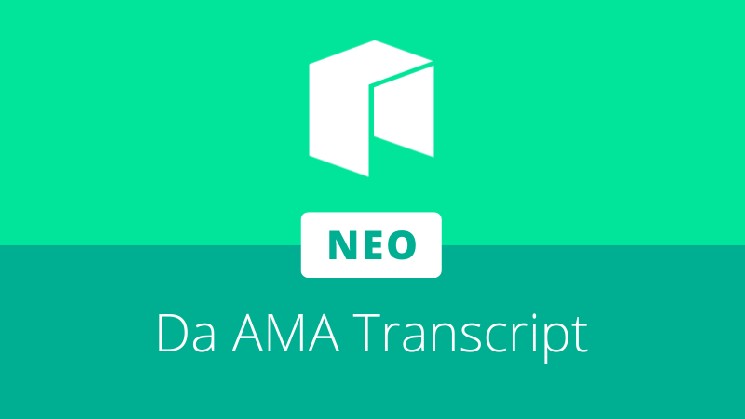
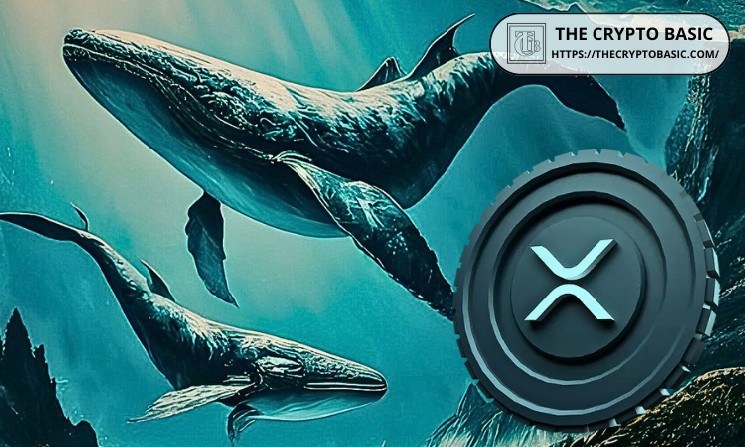
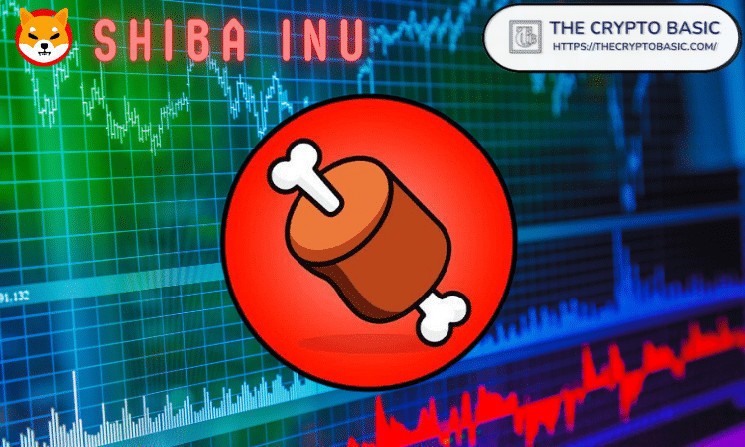
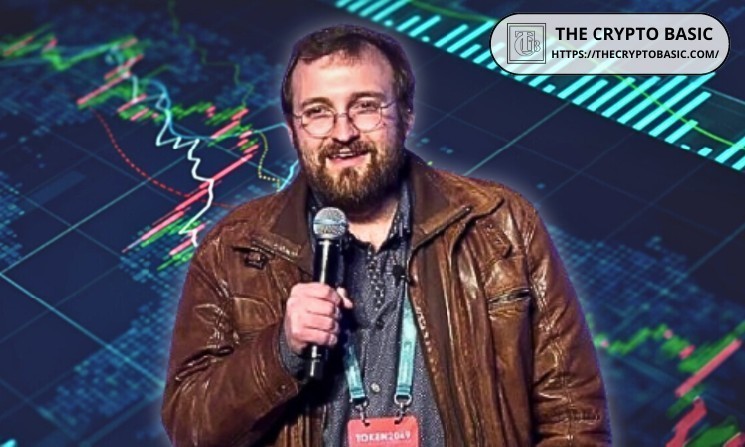
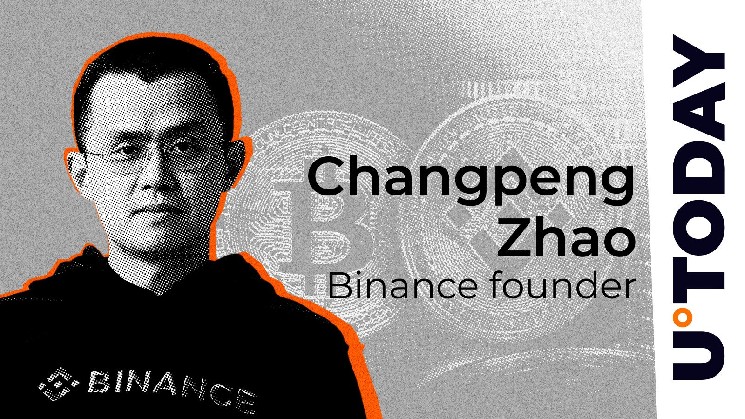

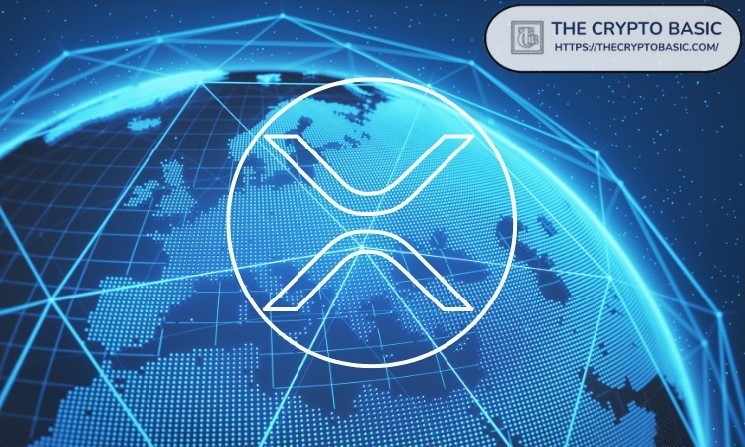
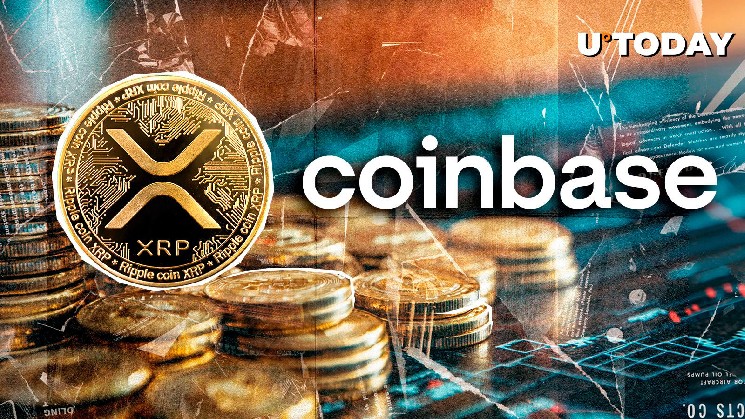



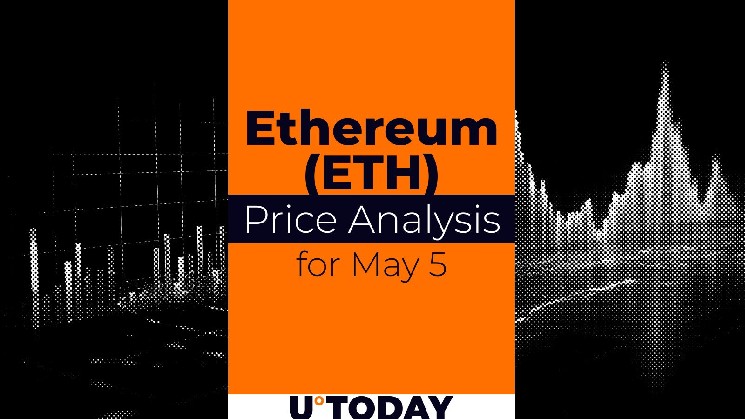
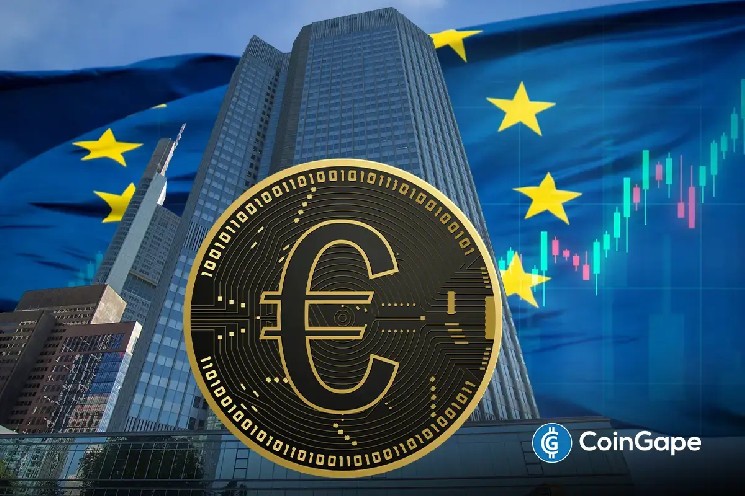

Leave a Reply